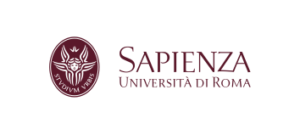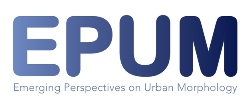The EPUM consortium comprises a set of universities, research groups, and professionals at different geographical areas, with extensive experience and expertise on urban form studies and pedagogy. The project’s consortium includes the University of Cyprus (Lead), Sapienza University Rome, University of Porto, TU Wien and Space Syntax Ltd.
 The University of Cyprus (UCY) leads on the coordination and management of the project, liaising between partners, ensuring the implementation of the project and its dissemination strategy, as well as supervising and taking part in the development and design of the project outputs, including the learning resources, an intensive programme (IP) and digital tools. Researchers at the Department of Architecture have an extensive expertise in multidisciplinary approaches to urban form studies, as well as competences in the development of combined educational curricula. The Software Engineering and Internet Technologies Lab of the Department of Computer Science, which will focus on the development of digital tools, has extensive experience in the area of applying ICT to e-Learning.
The University of Cyprus (UCY) leads on the coordination and management of the project, liaising between partners, ensuring the implementation of the project and its dissemination strategy, as well as supervising and taking part in the development and design of the project outputs, including the learning resources, an intensive programme (IP) and digital tools. Researchers at the Department of Architecture have an extensive expertise in multidisciplinary approaches to urban form studies, as well as competences in the development of combined educational curricula. The Software Engineering and Internet Technologies Lab of the Department of Computer Science, which will focus on the development of digital tools, has extensive experience in the area of applying ICT to e-Learning.
 The University of Porto (FEUP), has been instrumental in initiating the building of links between the various schools of thought, embedding various approaches into their curricula, and developing research combining a variety of methods. FEUP will lead on developing learning materials on the “historical-geographical” approach (known as the English or Conzenian school), on the collation of data for analysis of the case study of Porto, an Intensive Programme (IP) and will provide training materials on town-plan analysis aimed at understanding the geographical structure of cities and the process of their development.
The University of Porto (FEUP), has been instrumental in initiating the building of links between the various schools of thought, embedding various approaches into their curricula, and developing research combining a variety of methods. FEUP will lead on developing learning materials on the “historical-geographical” approach (known as the English or Conzenian school), on the collation of data for analysis of the case study of Porto, an Intensive Programme (IP) and will provide training materials on town-plan analysis aimed at understanding the geographical structure of cities and the process of their development.
 Sapienza University (SU), one of the most prominent organizations leading science internationally, will lead on developing learning materials on the “process-typological” approach (known as the Italian or Muratorian school) to the analysis of the urban form, inputting into how research findings can inform urban design proposals through an understanding of the historical process of cities formation. SU will provide training materials on the identification of spatial-temporal processes of the diversification of urban forms through the analysis of the structure of urban elements.
Sapienza University (SU), one of the most prominent organizations leading science internationally, will lead on developing learning materials on the “process-typological” approach (known as the Italian or Muratorian school) to the analysis of the urban form, inputting into how research findings can inform urban design proposals through an understanding of the historical process of cities formation. SU will provide training materials on the identification of spatial-temporal processes of the diversification of urban forms through the analysis of the structure of urban elements.
 SKUOR, TU Vienna is a recently established research centre, set up with the specific aim of effectively combining varying research perspectives on public space in a way that spurs insight and is made fruitful for theory and practice. SKuOR will lead on developing learning materials on the relational approach to the analysis of the urban form and on interdisciplinary approaches to the understanding of public space in cities. In particular, SKuOR’s role will be that of embedding into the learning structure conceptual, practical and research challenges that relate to the dynamics of social relations that unfold.
SKUOR, TU Vienna is a recently established research centre, set up with the specific aim of effectively combining varying research perspectives on public space in a way that spurs insight and is made fruitful for theory and practice. SKuOR will lead on developing learning materials on the relational approach to the analysis of the urban form and on interdisciplinary approaches to the understanding of public space in cities. In particular, SKuOR’s role will be that of embedding into the learning structure conceptual, practical and research challenges that relate to the dynamics of social relations that unfold.
![]() Space Syntax Limited, a highly successful SME originally founded as a spin-off company of University College London (UCL), has over 25 years of experience applying research to practice, developing strong links between the academic and the professional worlds, designing user-needs assessment tools and carrying out post-occupancy evaluations, as well as extensively engaging in education. SSL will lead on developing learning materials on the configurational approach to the analysis of the urban form and on the embedding of research findings into design practices.
Space Syntax Limited, a highly successful SME originally founded as a spin-off company of University College London (UCL), has over 25 years of experience applying research to practice, developing strong links between the academic and the professional worlds, designing user-needs assessment tools and carrying out post-occupancy evaluations, as well as extensively engaging in education. SSL will lead on developing learning materials on the configurational approach to the analysis of the urban form and on the embedding of research findings into design practices.


